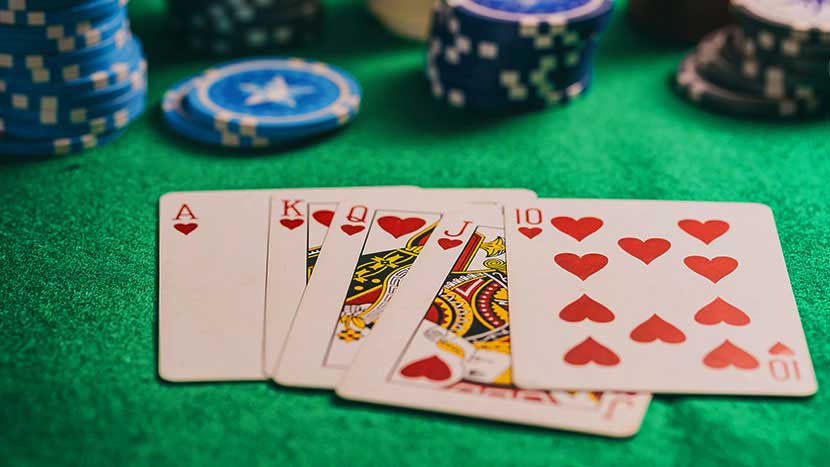Each poker hand is a unique combination influenced by probability and statistical significance. The science behind these hands offers a fascinating look into how probability shapes outcomes in a game widely played across various cultures and settings. This focus on the mathematical underpinnings of poker hands provides a foundation for understanding the game’s inherent nature.
Probability in Poker Hand Formation
Poker hand probabilities are a fundamental aspect of the game’s strategy. The likelihood of being dealt a specific hand in poker is calculated using combinatorics, a branch of mathematics. For instance, in a standard deck of 52 cards, the odds of being dealt a specific pair are relatively low compared to other hand types. This understanding of probability influences decision-making in gameplay.
The Role of Randomness
Randomness is an inherent part of poker. Despite the skill involved, the deal of the cards is subject to chance. Each shuffle of the deck introduces a new, unpredictable set of possibilities. This randomness ensures that each hand is unique and presents a fresh challenge, requiring players to adapt their strategies constantly.
Hand Rankings and Their Significance
In poker, hand rankings determine the value of the different combinations of cards players can have. From high cards to royal flushes, each hand has a set ranking based on its rarity and the odds of it occurring. Understanding these rankings is crucial for making strategic decisions, such as knowing when to bet, call, or fold.
Expected Value in Poker Hands
Expected value (EV) is a critical concept in poker. It represents the average amount a player can expect to win or lose with a particular hand over time. Calculating EV involves considering the potential outcomes, their probabilities, and their respective payoffs. This calculation helps players make more informed decisions about the hands they play.
Poker Hands with the Best Odds
When considering which poker hands have the best odds, players must evaluate the likelihood of each hand’s occurrence and its strength in comparison to potential opponent hands. The odds of being dealt certain hands, and the probability of these hands winning, are crucial factors in poker strategy.
The Impact of Player Actions
Player actions in poker significantly affect the dynamics of hand probabilities. Decisions like folding, calling, or raising alter the odds and potential outcomes. Players need to consider not only their own hand but also how their actions will influence their opponents’ decisions and the overall flow of the game.
Bluffing and Hand Probabilities
Bluffing is a tactic used to misrepresent a player’s hand strength. It involves understanding hand probabilities and manipulating opponents’ perceptions. Effective bluffing requires a balance between knowledge of the odds and psychological insights into opponents’ behaviors.
Positional Influence on Hand Strength
A player’s position at the table impacts the perceived strength of their hand. Being in a late position, where a player acts after most opponents, provides valuable information and can make a hand seem stronger or weaker. Positional awareness is key to maximizing the potential of each hand.
Advanced Hand Analysis Techniques
Advanced players use hand analysis techniques to refine their strategies. This involves reviewing past hands, considering different lines of play, and understanding the impact of various factors on hand outcomes. Hand analysis is a continuous learning process that improves decision-making skills.
Psychological Aspects and Hand Selection
Psychology plays a significant role in hand selection and play. Players must gauge their opponents’ tendencies, confidence levels, and potential reactions. This psychological aspect, combined with a scientific understanding of hand probabilities, shapes a well-rounded poker strategy.
Risk Management in Poker
Effective risk management is crucial in poker. It involves assessing the potential risk versus the reward of each play. Players must evaluate the size of the pot, the strength of their hand, and the likelihood of opponents having superior hands. This assessment helps in deciding whether to fold, call, or raise. Risk management in poker also includes bankroll management, ensuring that players only risk a small portion of their total funds in any given game or hand, thereby protecting themselves from significant losses.
The Mathematics of Betting Strategies
Betting strategies in poker heavily rely on mathematics. Understanding concepts like pot odds and implied odds is essential. Pot odds are the ratio of the current size of the pot to the cost of a contemplated call, while implied odds consider the expected size of the pot after the final betting round. Players use these odds to determine the most profitable course of action, whether it’s to bet, raise, or fold. Betting strategies also involve calculating bet sizes to maximize winnings or minimize losses.
Adaptability in Changing Game Dynamics
Adaptability in poker refers to the ability to adjust one’s strategy based on the current game situation. This includes changing play styles when moving from online to live games, adjusting to the varying skill levels of opponents, and adapting to the different stages of a tournament. Adaptability also involves recognizing and responding to shifts in the game dynamics, such as changes in the aggressiveness of players or the size of the blinds. Being flexible and able to adjust strategies on the fly is a key component of successful poker play.
Conclusion
The science behind poker hands combines probability, psychology, and strategy. Understanding the odds, the significance of hand rankings, and the impact of player actions creates a foundation for successful play. While chance plays a role, skill and knowledge significantly influence the outcomes in poker.







